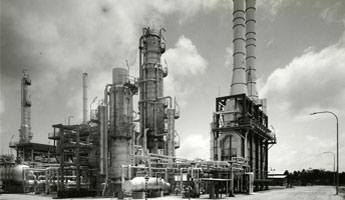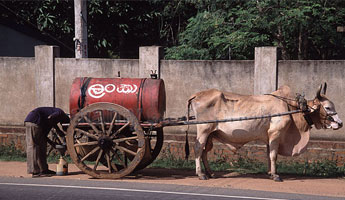History
In 1961, the Government of Sri Lanka under the Ceylon Petroleum Corporation Act No.28 of 1961 established the Petroleum Corporation with the following general objectives in mind: "To carry on business as an importer, exporter, seller, Supplier or distributor of petroleum , to carry on the business of exploring for, the exploiting, producing and refining of petroleum to carry on any such business as may be incidental or conducive to the attainment of these objectives"
The corporation entered the business of importing and marketing petroleum products in April 1962, in competition with Shell, Esso, and Caltex Oil Companies, who were operating in the country at the time of the formation of the Corporation. As the Companies were unable to import products at cheaper prices, the Corporation by Government decision took over the business of import and internal distribution of oil in 1964.
To ensure regular supplies and conserve foreign exchange, the corporation built a refinery in 1968, at a cost of Rs 175 Million and commenced production in 1969. Another important project that was completed in the same year was the Lubricating Oil Blending Plant was Privatized in December, 1992, and it is now owned and operated by the lanka Lubricants Limited.
Oil Companies in 1971 and 1972 respectively, and with this the right to import, export, sell, supply or distribute petroleum of any class was exclusively vested in the corporation. The bunkering business is now being carried out by the lanka marine services (Pvt) Ltd., which is own by the Ceylon Petroleum Corporation. The corporation entered the agro chemical business in 1969, in competition with the private sector, with a view to market Agro - chemical product at reasonable prices.
The GOSL decided to liberalize the petroleum sector in 2003 and invited the Government of India to enter into the downstream retail marketing of peroleum by offering China Bay tank farm on long lease. The basis of liberalization was to limit the marketing companies to three for a initial period of five years and the formation of Common User Facility company called "Ceylon Petroleum Storage Terminals Limited" (cpstl) to manage the storage and distribution infrastructure of CPC comprising Kolonnawa and Muthurajawella Installations, all bulk depots island wide.








